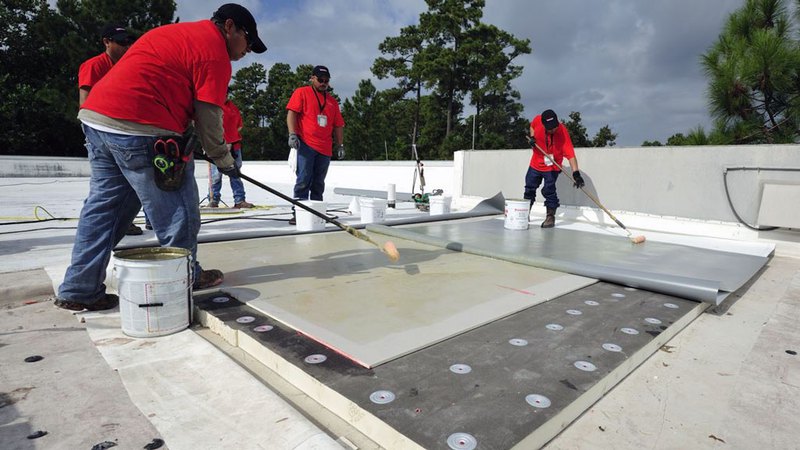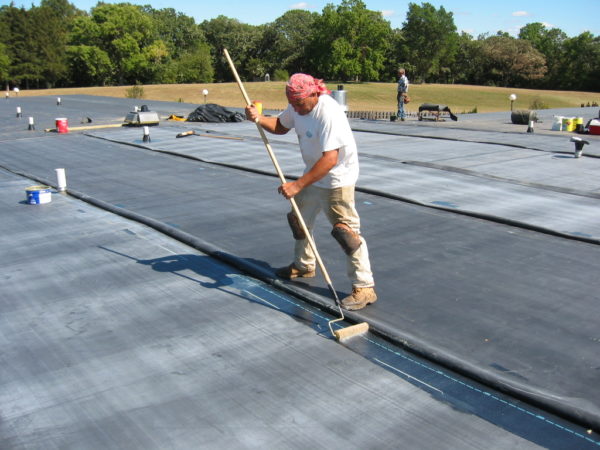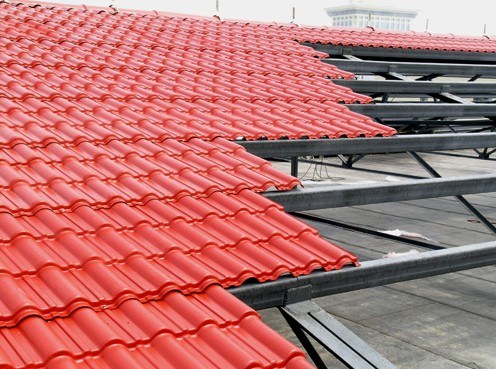COMMERCIAL ROOFING
As a reputable commercial roofing contractor in Naples, Florida, we’ll ensure that your business stays protected. Managing your commercial roof is a daunting task and you’ll need experts to meet all your roofing needs.
For years, we have been providing professional commercial roofing services to both big and small businesses around Naples, Florida. Whether you’re installing a new roof, need a roof replacement, roof repairs, or maintenance, we’re here to help.
We provide the latest roofing services to make sure that your business stays open. We’ll make sure that your business is not interrupted while we process your roofing project. We use the latest roofing technology along with state of the art equipment to ensure superior workmanship.
We only use the best roofing materials from the best manufacturers. We take pride in serving the entire Naples area and we provide unmatched quality of service. That’s why many business owners entrust their roofing projects to us.
No matter how small or large your building is, we’ll finish the job as expected. Our goal is to provide you with superior quality service and excellent customer satisfaction. When you hire and work with us, you’ll know that you’ve made the right choice.
Commercial Roofing In Naples, FL - Best Roofing Materials
- TPO - Thermoplastic Polyolefin
- EPDM - Ethylene Propylene Diene Terpolymer
- PVC - Polyvinyl Chloride
- BUR - Built-Up Roofing
- LAM - Liquid Applied Membrane
- Metal Roofing

TPO Roofing
TPO is widely used by business owners because not only is it a cost-effective type of commercial roofing system, but it is also energy-efficient and UV resistant. There are three methods used in the installation of TPO and they can be mechanically-attached, ballasted, or fully-adhered. The seams of TPO are heat-welded to prevent water leaks.
The weather in Naples, Florida can be unforgiving at times, but TPO can withstand extreme weather conditions. TPO is also resistant to fire, abrasion, and punctures and this material is also resistant to chemical exposure, dirt, and molds.
EPDM Roofing
EPDM is a lightweight, durable, and flexible commercial roofing material. It can also withstand severe weather conditions and it’s resistant to moisture. This is also a widely-used commercial roofing material that is used for different types of commercial buildings.
Since EPDM is fire-resistant, energy-efficient, and recyclable, many commercial building owners turn to EPDM as their choice of roofing material. It also provides excellent indoor ventilation throughout the building.
EPDM comes in two traditional colors such as black or white and it provides a clean and smooth finish once installed. This will improve the overall aesthetics of your commercial building. Similar to TPO installation, they can be fully-adhered, mechanically-fastened, or ballasted and they can last up to 40 years or more with proper maintenance.


PVC Roofing
This is also a durable type of roofing membrane that features hot-air welded seams. They’re recyclable, mold-resistant, and environment-friendly. One of the best advantages of PVC is that they’re very hard to ignite and are also fire-resistant.
PVC can last for up to 20 years when properly maintained. It can be installed on low-slope roofs or flat roofs using a ballasted installation. You’ll need an expert roofing contractor to install a PVC roofing material. When PVC is properly installed, your roof will have a longer lifespan.
How To Choose A Roofing Contractor?
BUR or Modified Bitumen
Bitumen is waterproof, impact-resistant, and it can also expand and contract without losing its original shape. They’re also energy-efficient and reflect sunlight. This results in low energy consumption and it will also help improve your building’s cooling or heating requirements.
Built-up roofing or bitumen are used on buildings with flat roofs or low-slope roofs. It has alternating layers of reinforcing fabric and bitumen. The top layer is composed of a layer of aggregates such as stone and gravel. However, the installation process for bitumen is slow.
There are three parts used for built-up roofing and these are ply sheets, bitumen, and surfacing materials. Bitumen can be applied as hot, the material is heated and the liquid is applied during installation. The cold process is applied as an adhesive and is not heated. As far as the roofing application is concerned, it has been observed that cold adhesive is more effective.
The average lifespan of bitumen or built-up roofing depends on the weather conditions and the type of materials used. This type of roofing material can last for up to 40 years with proper care and maintenance. Built-up roofing is effective in areas with warm weather as compared to regions with cold weather.
The advantages of built-up roofing include protection from ultraviolet rays and excellent waterproofing capabilities. They’re also low-maintenance so you don’t have to worry about maintenance costs. The drawback of this type of roofing involves exposure to dangerous fumes.
Installation costs are also high and they’re vulnerable to water and wind damage.
